Black coffee is one of the most popular types of coffee, and for good reason – it’s rich, flavorful, and energizing. If you’re new to black coffee, here’s everything you need to know about it.

If you’re familiar with caffeinated beverages, you’ve probably heard about various types of coffee, such as iced coffee, frappuccinos, and cappuccinos.
However, one thing that still manages to baffle even well-versed coffee drinkers is the strong, yet simple black coffee.
Many fail to understand what black coffee truly is, and assume that it’s just regular coffee brewed extra strong.
Although black coffee can be stronger than its sweeter counterparts, it’s not necessarily a rule, and you’ll soon understand why.
Table of Contents
Black Coffee: Everything You Need to Know
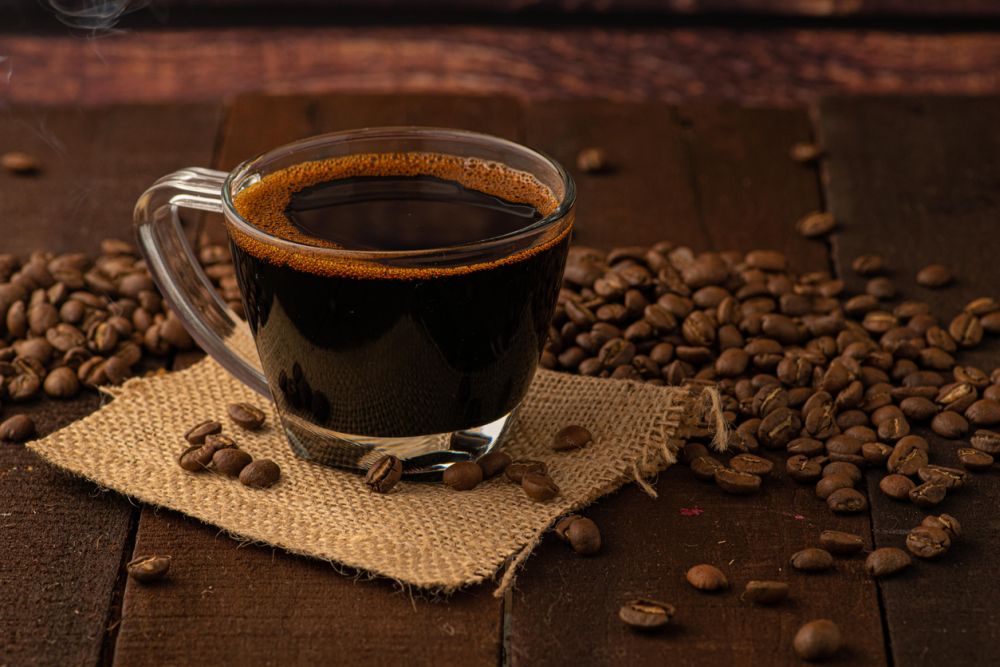
Black coffee is the purest form of coffee. It’s brewed coffee without any additional flavoring – no sugar, creamer, milk, or anything else.
Some people believe this makes black coffee sound unappealing. But we say otherwise. When you drink black coffee, you’re getting the truest taste of the bean.
It’s why many people looking to cut down on their sugar intake or calories turn to black coffee. And once you get used to the bolder taste, you might be surprised at how much you enjoy it.
Types of Black Coffee
There are a few different types of black coffee, each with its own unique flavor profile:
- Americano. It’s made by combining espresso with hot water to create a coffee less intense than an espresso but with a fair amount of caffeine.
- Black Espresso. It’s simply espresso with no added water – a strong coffee with a very bold flavor.
- Long black. It’s similar to Americano but made by pouring hot water over a double shot of espresso. This coffee has a higher caffeine content than an Americano.
- Cold brew. It’s made by steeping coffee grounds in cold water for 12 to 24 hours. This coffee is less acidic than others and has a smoother flavor.
Health Benefits

In addition to being a low-calorie and sugar-free beverage, black coffee has many health benefits.
It’s a good source of antioxidants, which can help protect your cells from damage. Well, this applies to coffee in general. But without sugar and other distractions, your body can focus on what matters most.
Coffee consumption has also been linked with a lower risk of death from cardiovascular disease, cancer, and other chronic diseases.
Furthermore, black coffee is also a good source of caffeine, which can improve your mental alertness and focus. If you’re looking for a way to increase your productivity, this coffee type is a fantastic option.
Again, you can harness these health benefits from other types of coffee as well. But they might be diminished by sweeteners, cream, milk, and other additions.
Why Some People Don’t Enjoy Black Coffee
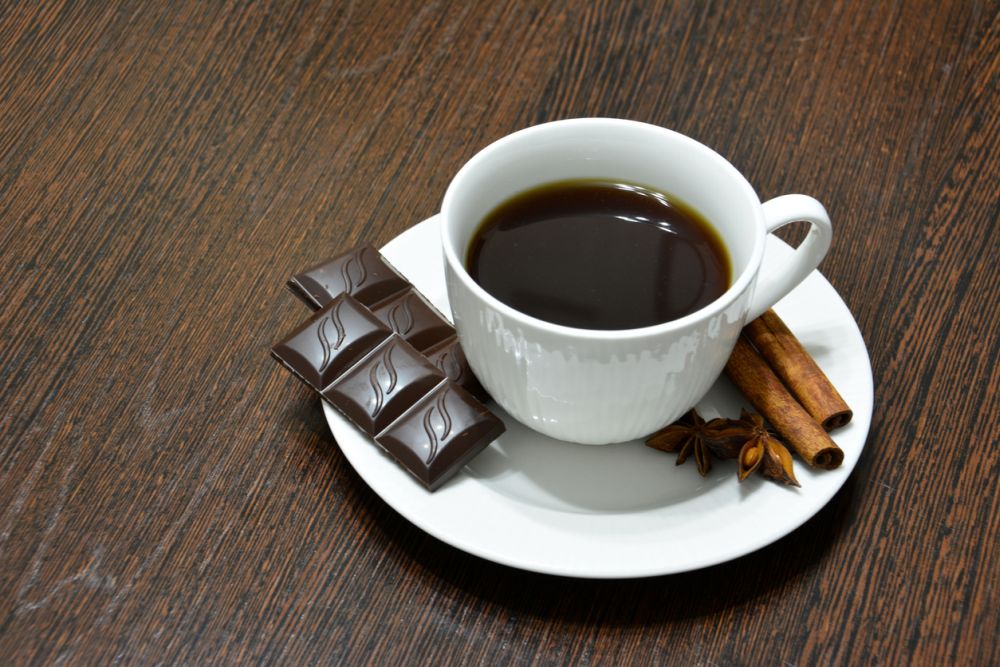
Although black coffee has many benefits, some people don’t like its taste. If you’re used to sweetening your cup of joe with milk and sugar, the bold flavor of black coffee can be a bit off-putting.
On the bright side, there are many ways to ease into drinking black coffee.
Start by adding a little less milk and sugar until you get used to the new flavor. You can also try cold brew coffee since it’s smoother.
Here’s a trick: add a splash of cold water instead of milk or sugar to mellow out the bitterness and create a more enjoyable cup of java.
Is Black Coffee Better?
It’s a bit complicated. While black coffee does have some benefits over other types of coffee, it ultimately comes down to personal preference.
If you’re looking for the healthiest option, black coffee is a great choice. But if you’re looking for something with a bit more flavor, you might want to try cold brew or adding a splash of milk.
You shouldn’t mistake black coffee for an actual type of coffee since it’s not. For instance, white coffee is a type of its own, much like green coffee. Black coffee is simply coffee without any additions.
With that in mind, you might be able to understand better that for some, black coffee is better, while for others it’s just not right.
However, black coffee takes the cake from an entirely health-oriented standpoint. It lacks the sugar and saturated fats of other types of coffee, and it’s also a good source of antioxidants and caffeine.
Why Switch to Black Coffee
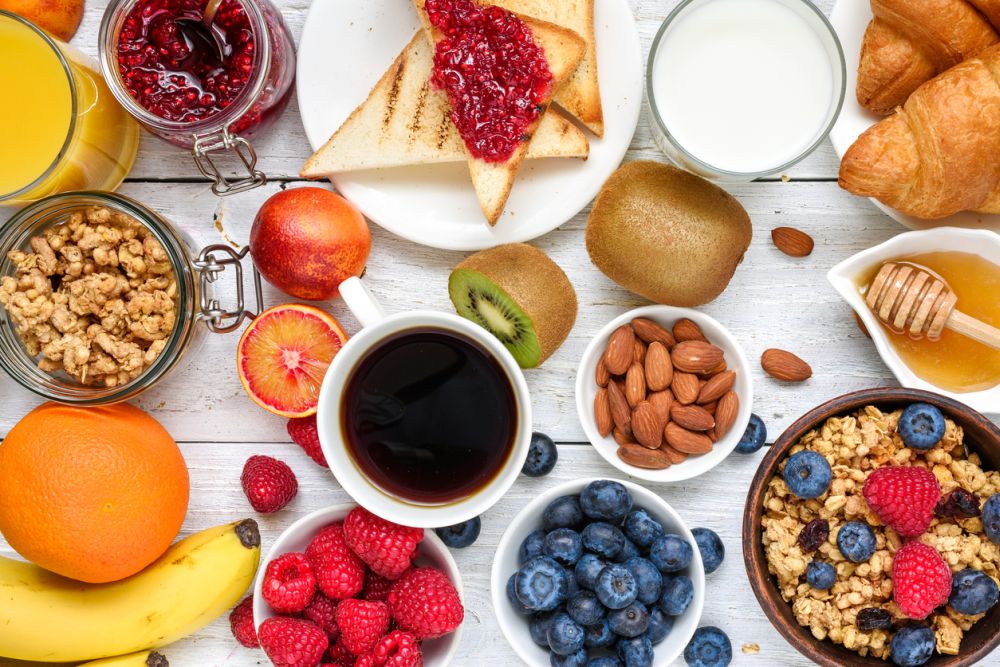
If you’re thinking about dipping your toe in the metaphorical black coffee water, here’s what you should know:
- Black coffee is perfect for lactose-intolerant coffee drinkers since milk and cream can be problematic.
- Sugar is an empty calorie – no nutritional value. If you’re trying to cut back on sugar, black coffee is a great way to do it.
- If you’re looking to improve your mental focus, black coffee might be the way to go since caffeine is a natural stimulant.
- Black coffee is a low-calorie beverage, so it’s ideal if you’re watching your weight and going on a diet.
- If you love the pure taste of coffee, black coffee is what you need since it’s the purest form of this beverage without any added flavors.
Chances are you’ve already found the perfect reason to switch to black coffee. But even if you haven’t, there’s no harm in trying. After all, the worst that could happen is you don’t like it and go back to your old ways.
How to Switch to Black Coffee
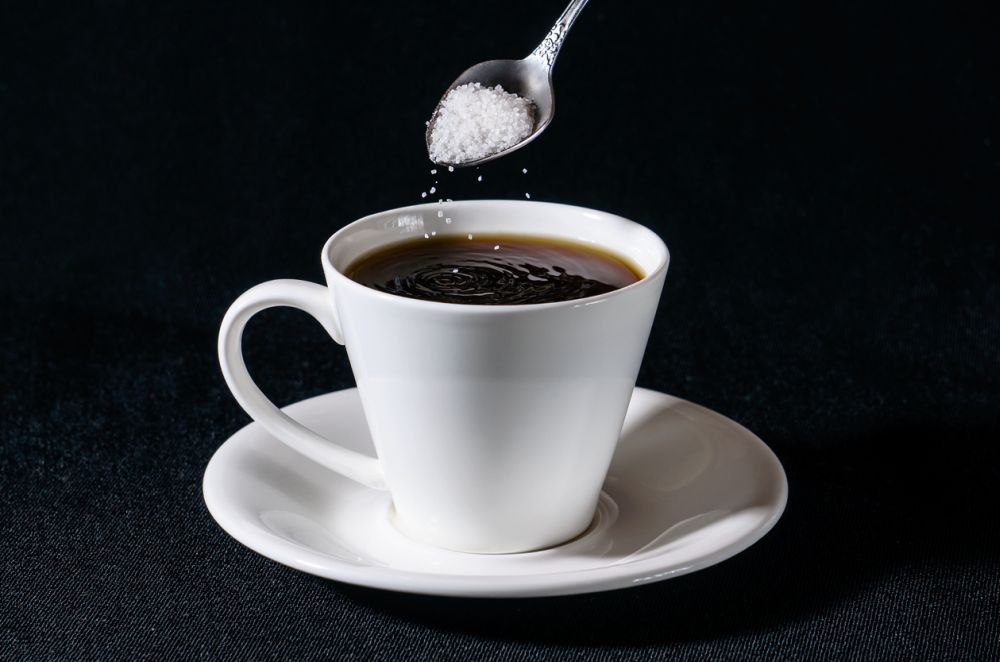
If you’re ready to make the switch, here are a few tips to help you ease into it:
- Choose light roasts since they have a milder flavor than dark roasts.
- Start with cold brew because it’s less acidic than hot coffee, so it’s easier on your stomach. It’s also less bitter.
- Add a bit of salt to get comfortable with the taste. This helps mellow out the flavor and make it more palatable.
- Try different brewing methods since they affect the coffee’s flavor. For instance, if you normally use a drip coffee maker, make espresso or Turkish coffee instead. Feel free to also experiment with different coffee-to-water ratios to nail the strength.
- Switch to Arabica beans since they are less bitter than Robusta beans.
- Give it time since most people take a while to get used to the taste of black coffee.
- Switch to low-acid varieties if you’re struggling with the acidity of black coffee since they are gentler on your stomach.
How to Brew the Perfect Cup of Black Coffee
Brewing black coffee is no rocket science since it doesn’t involve milk, cream, or other additions. Here are some tips:
- Start with fresh, quality coffee beans since is the most important step, no matter what type of coffee you’re batching.
- Use filtered water to ensure your coffee won’t have any weird flavors from tap water.
- If you’re using ground coffee, stick to a fine grind; a coarse grind creates a weak cup.
- And finally, don’t overdo it! Start with two tablespoons of coffee per cup of water and adjust as needed. Too much coffee will result in a bitter, unpleasant cup of coffee.
It goes without saying that how you brew coffee plays a critical role in taste. So you should experiment with various brewing methods. From our experience, the pour-over method tends to produce the best results.
Trivia Facts
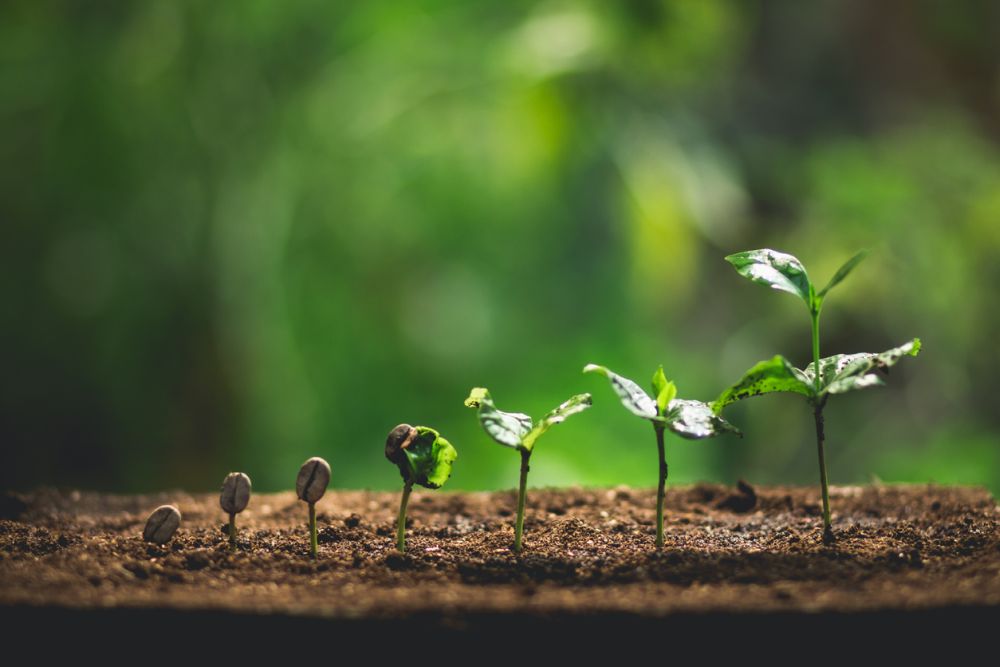
Although we’re pretty sure you’re already sold out on black coffee if you made it this far, we thought we’d leave you with a few fun facts about this delicious beverage:
- Coffee was first discovered in Ethiopia in the 9th century.
- The word coffee comes from the Arabic word for wine, which is fitting considering how coffee was originally used as a replacement for wine.
- Coffee beans are actually the seeds of a fruit.
- Coffee is the second most traded commodity in the world, behind oil.
- The first coffeehouse in England opened in 1652.
- There are two types of coffee beans: Arabica and Robusta. Arabica beans are used to make specialty coffees, while Robusta beans are used for instant coffees and lower-quality coffees.
- The first recorded use of the term black coffee was in 1650.
- In the Middle East, black coffee is known as Turkish coffee.
- Black coffee is the preferred coffee choice for many people because they can taste the true flavor of the beans.
- Some people believe that black coffee has more caffeine than other types. But it’s false – the amount of caffeine in coffee depends on the beans used, brewing method, and serving size.
- The bitter taste is caused by extra coffee oils, compared to other coffee types.
- When brewed correctly, black coffee has a rich, complex flavor.
FAQ
Discover more helpful information about black coffee?
What is black coffee?
Black coffee is coffee brewed without any additional ingredients like milk, cream, or sugar.
Is black coffee healthy?
Yes, black coffee is healthy. It’s a good source of antioxidants and can help improve your mental alertness and focus.
Does black coffee taste good?
This is a matter of personal preference. Some people love the taste of black coffee while others find it too bitter. If you’re not sure if you’ll like it, we recommend trying a small cup first and adjusting as needed.
What is black coffee famous for?
Black coffee is famous for its simple, no-frills approach. It’s all about the coffee beans and brewing method, which allows the true flavor of the beans to shine through.
How do I make a black coffee?
Making a black coffee is easy: just brew the coffee using your preferred method, refrain from putting any additions (milk, sugar, cream, spices) into it, and voila!
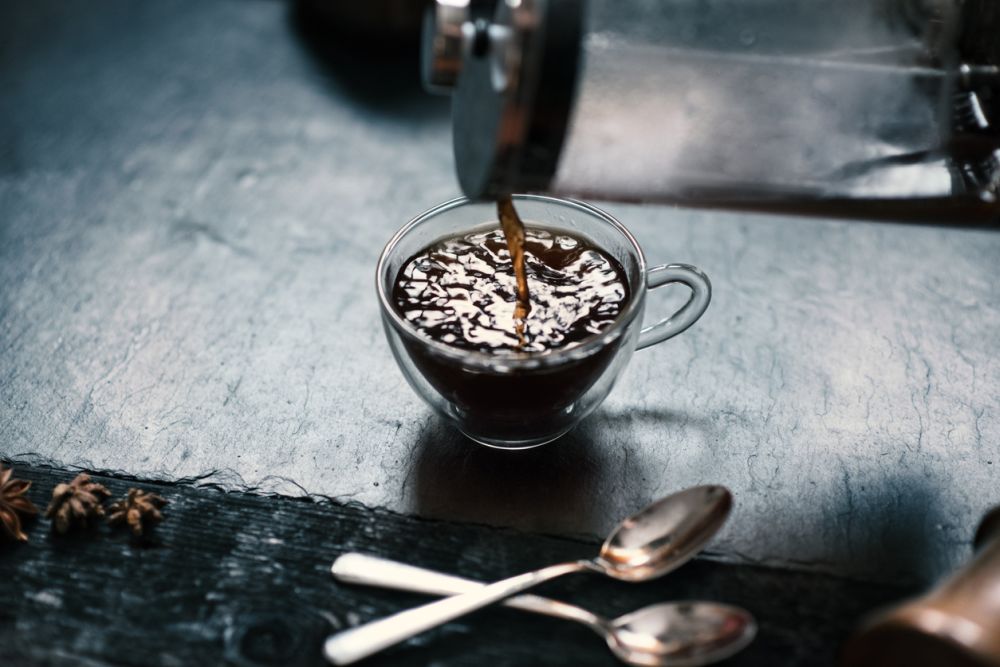
Can black coffee reduce weight?
Everyone’s weight-loss journey is different. However, some people find that black coffee helps boost their metabolism and curb their appetite, which leads to weight loss.
Can I drink black coffee on an empty stomach?
We don’t recommend drinking coffee on an empty stomach since it can aggravate digestive issues like heartburn and indigestion. If you haven’t eaten yet, we suggest waiting at least 30 minutes after waking up before having your first cup.
Where can I buy black coffee?
You can buy black coffee beans from most coffee shops and online retailers.
How much black coffee should I drink?
We recommend limiting your intake to 3 or 4 cups per day to avoid side effects like insomnia and irritability.
Is black coffee good for skin?
Yes, the antioxidants in black coffee help protect your skin from damage and keep it looking young and healthy.
What are the side effects of black coffee?
Side effects of black coffee include insomnia, irritability, and stomach upset. If you experience any of them, limit your intake or switch to decaf.
Verdict
To wrap it up nicely, black coffee is coffee brewed without any additional ingredients. It’s simple, no-frills, and allows the true flavor of the coffee beans to shine through.
While some people find black coffee too bitter, others enjoy its rich, complex flavor. It’s also a good source of antioxidants and can help improve your mental alertness and focus.
So, if you’re looking for a pure and unadulterated coffee experience, black coffee is the way to go!
Leave a Reply